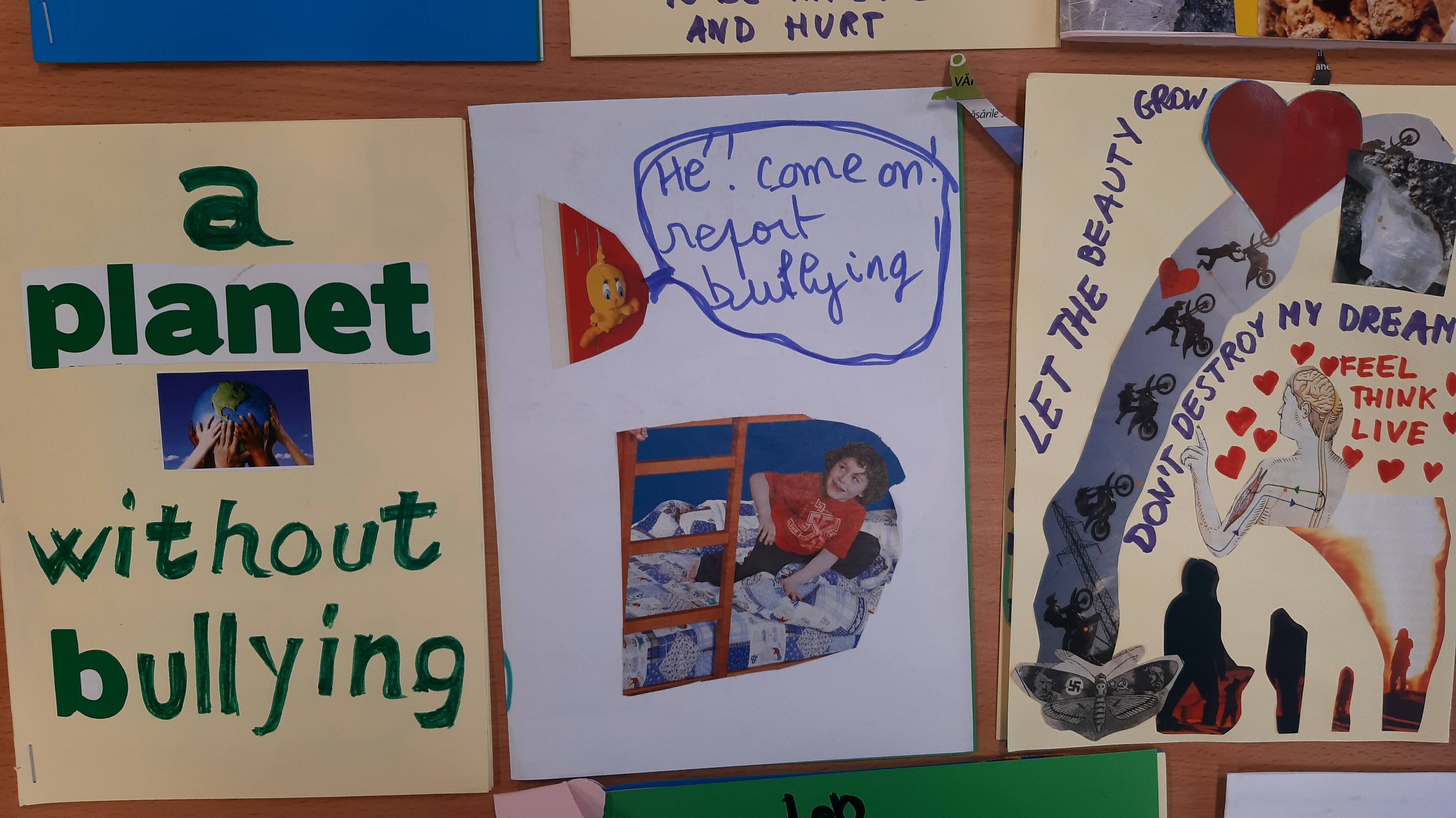
Topic(s) addressed
The project focused on inclusion, equity, success for disadvantaged students, civic engagement, and responsible citizenship, as well as tackling early school leaving and disadvantage.
Target group(s)
The target group included 54 teachers and 300 students.
Methodologies
The project employed peer-to-peer learning and non-formal teaching methods from different cultures. It combined previous experiences, methods, and practices used by the project partners, bringing them together in a new context. This included studying innovative topics such as stencil graffiti, mail art, fanzines, and photovoice. This integrated students into the community by giving them the opportunity to act as citizen journalists using artistic techniques to combat bullying and promote the social integration of students.
Innovation environment
To build a positive school climate. pupils were involved in an anti-bullying campaign. This campaign aimed to influence their peers and the local community. Teachers were supported in acquiring and improving their competencies in recognising the causes and effects of bullying at school, as well as developing strategies and methods to prevent it. Non-formal methods were used to improve understanding, recognition, and prevention of bullying and its negative impact on school and student’s life.
Teachers’ role
Teachers engaged in peer learning, learning from other project partners and sharing their experiences. They combined previous experiences, methods, and practices used by the project partners, bringing them together and using them in a new context. The topics emphasised active creative expression and were used in a new creative approach as a tool in the process of bullying prevention.
Impact and output
Participants gained knowledge on the phenomenon of bullying, and the ability to prevent, counteract, and combat bullying. Students improved competencies in using theatre to counteract bullying and change the behaviour and attitudes of bullies. The long-term aim is to reduce school drop-out rates and stimulate the social integration of pupils from vulnerable groups through visual arts. Students increased their confidence, self-esteem, and their motivation to change negative behaviour.
Video
- Reference
- 2020-1-PL01-KA201-081490
- Project locations
- Poland
- Project category
- Secondary education
- Project year
- 2024
Stakeholders
Coordinators
Zespół Szkół Agrotechnicznych i Ogólnokształcacych
- Address
- Poland
Participants
Association for Intercultural Dialogue
- Address
- Romania
Balkanska Agenciya za Ustoychivo Razvitie
- Address
- Bulgaria
Sehit Fatih Satir Bilim Ve Sanat Merkezi
- Address
- Türkiye
College Terrain Fayard
- Address
- France
Liceul Tehnologic Regele Mihai I Curtea de Arges
- Address
- France
